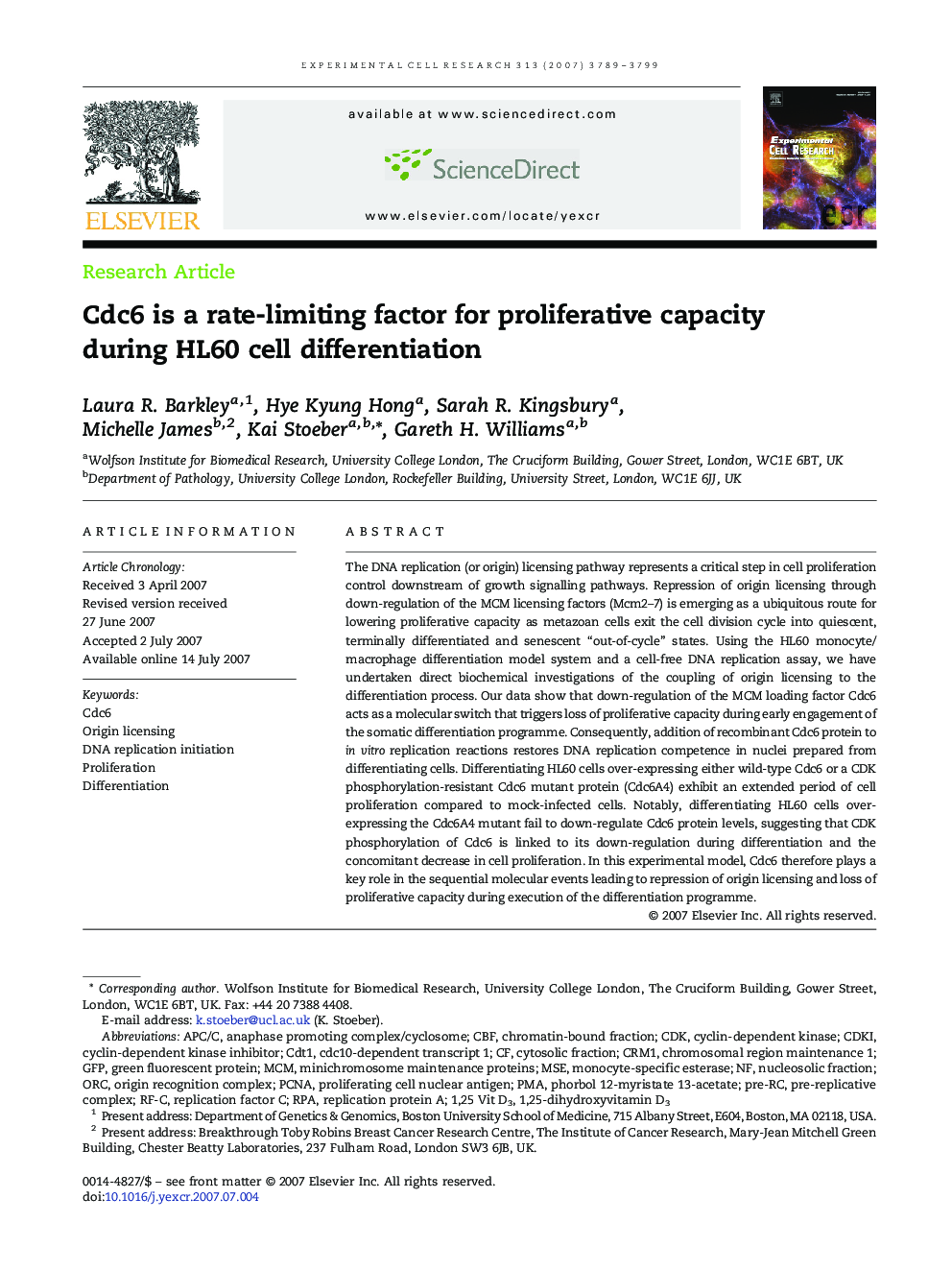| Article ID | Journal | Published Year | Pages | File Type |
|---|---|---|---|---|
| 2132456 | Experimental Cell Research | 2007 | 11 Pages |
The DNA replication (or origin) licensing pathway represents a critical step in cell proliferation control downstream of growth signalling pathways. Repression of origin licensing through down-regulation of the MCM licensing factors (Mcm2–7) is emerging as a ubiquitous route for lowering proliferative capacity as metazoan cells exit the cell division cycle into quiescent, terminally differentiated and senescent “out-of-cycle” states. Using the HL60 monocyte/macrophage differentiation model system and a cell-free DNA replication assay, we have undertaken direct biochemical investigations of the coupling of origin licensing to the differentiation process. Our data show that down-regulation of the MCM loading factor Cdc6 acts as a molecular switch that triggers loss of proliferative capacity during early engagement of the somatic differentiation programme. Consequently, addition of recombinant Cdc6 protein to in vitro replication reactions restores DNA replication competence in nuclei prepared from differentiating cells. Differentiating HL60 cells over-expressing either wild-type Cdc6 or a CDK phosphorylation-resistant Cdc6 mutant protein (Cdc6A4) exhibit an extended period of cell proliferation compared to mock-infected cells. Notably, differentiating HL60 cells over-expressing the Cdc6A4 mutant fail to down-regulate Cdc6 protein levels, suggesting that CDK phosphorylation of Cdc6 is linked to its down-regulation during differentiation and the concomitant decrease in cell proliferation. In this experimental model, Cdc6 therefore plays a key role in the sequential molecular events leading to repression of origin licensing and loss of proliferative capacity during execution of the differentiation programme.
